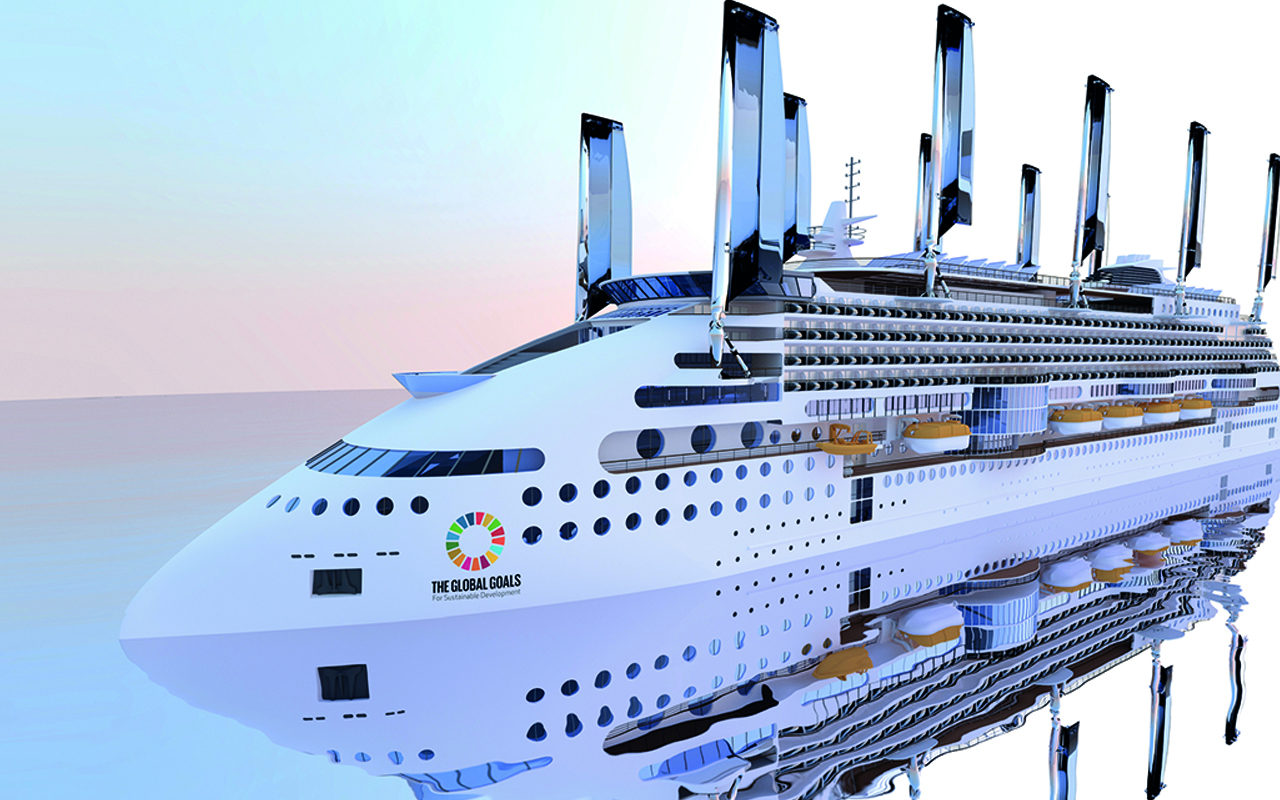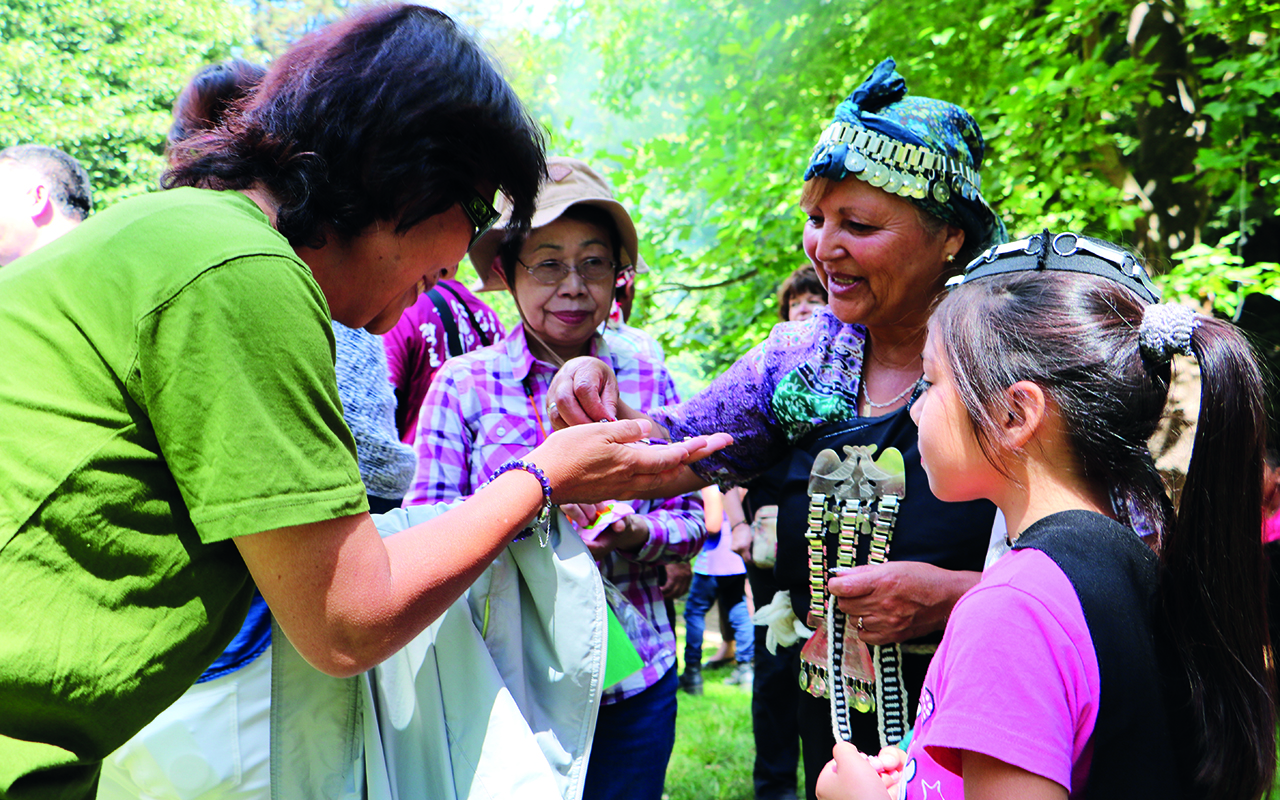Published: Friday November 03 2017Peace Boat, founded by a group of Japanese students over three decades ago, sails around the world, enabling people to engage across borders, fostering dialogue and mutual cooperation – a floating bridge between culturesThe world faces many serious challenges, such as armed conflicts, nuclear threats, poverty, disease and environmental threats – and finding solutions often seems to be beyond the reach of individuals and communities. But in 1983, a Japanese student decided to devote himself to working for peace in the Asia-Pacific region by launching a Peace Boat cruise to visit neighbouring nations and build grassroots reconciliation and friendship.The first voyage was financed by a group of friends who split the cost of chartering a ship. But today
Topics:
Perspectives Pictet considers the following as important: Family Governance, Financial Time supplement, In Conversation With, philanthropy, Pictet FT supplement
This could be interesting, too:
Perspectives Pictet writes House View, October 2020
Perspectives Pictet writes Weekly View – Reality check
Perspectives Pictet writes Exceptional Swiss hospitality and haute cuisine
Jessica Martin writes On the ground in over 80 countries – neutral, impartial and independent
Peace Boat, founded by a group of Japanese students over three decades ago, sails around the world, enabling people to engage across borders, fostering dialogue and mutual cooperation – a floating bridge between cultures
The world faces many serious challenges, such as armed conflicts, nuclear threats, poverty, disease and environmental threats – and finding solutions often seems to be beyond the reach of individuals and communities. But in 1983, a Japanese student decided to devote himself to working for peace in the Asia-Pacific region by launching a Peace Boat cruise to visit neighbouring nations and build grassroots reconciliation and friendship.
The first voyage was financed by a group of friends who split the cost of chartering a ship. But today Peace Boat has grown into a large social business financed by selling tickets on a commercial basis. It now runs round-the-world voyages which have added a wide range of sustainability campaigns to the original peace mission. Peace Boat also runs volunteer schemes, including disaster relief activities after the 1995 Kobe earthquake and at Fukushima following the devastating earthquake and tsunami in 2011.
‘Our first voyage used a ship because we were able to charter one at low cost in the typhoon season and it was the most practical way to travel,’ says Yoshioka Tatsuya, founder and director of Peace Boat. ‘But during that trip, we started to understand how powerful a tool it was, because a ship is like a small planet: you have to get along and cooperate with your fellow passengers – and there is no way to escape!’
‘Because of that, it is an incredibly creative open space which encourages dialogue and cooperation beyond the borders of nationality, religion, etc. In the past, many terrible things like colonialism, disease and war were carried by ships, but we wanted to explore the idea of a ship as a force for good.’

His original motive for Peace Boat was learning about the suffering caused by Japan in the war, on the one hand, and the horror of the atomic bombing of Hiroshima, on the other. When he was a student in the early 1980’s, there was a lot of controversy and tension over how history was taught in schools, and particularly how its aggression was glossed over in school textbooks. He was concerned about how history was being distorted and that such lack of understanding was risking peace.
Peace Boat is now a flagship for the UN’s Sustainable Development Goals, having previously supported the Millennium Development Goals which were replaced by the SDGs in 2015. The ship carries a huge SDG logo on its hull, which is seen by hundreds of thousands of people each year as the ship sails through dozens of ports worldwide. When in port, its passengers work with local community groups and student organisations on their sustainability programmes.
As it has developed, Peace Boat has attracted numerous partners, from guest speakers on educational programmes, to business partners such as shipping agents and travel agents. Yoshioka Tatsuya feels strongly that financial autonomy is essential for NGOs, to protect their ideological independence and secure their sustainability for the future. That is why he sees it is important for Peace Boat to fund itself through passengers paying the costs of joining its voyages.
He says that Peace Boat has grown more than he could have ever dreamt and has become Japan’s largest cruising organisation, with three 90-100 day round-the-world cruises each year. Three decades after its foundation, it is on its 95th voyage for peace, having taken more than 65,000 people to over 100 ports on seven continents for study, volunteering, cultural exchange and tourism.

‘Peace Boat’s success is shown in the impact we make on individual peoples’ lives while building holistic international awareness on sustainability and peace.’ Up to 40 per cent on some voyages are repeat passengers, and they are increasingly diverse. ‘Until a few years ago, they were mainly Japanese, but we are now carrying a great number from China, Singapore, Taiwan and Korea. Having passengers of multiple nationalities furthers our original mission, as well as strengthens our business and potential to expand.’
Peace Boat continues to evolve, and after thirty years of using second-hand vessels is planning to launch its own ship which will embody its messages of sustainability and peace. ‘The Ecoship will be the world’s most sustainable cruise liner when it sets sail in 2020,’ says Yoshioka Tatsuya. ‘Its stunning whale-inspired design was the result of a three-year research process which combines innovative energy efficiency measures and the use of renewable energies with real eco-systems on board.
‘It will cut propulsion energy by 20 per cent, electricity use by 50 per cent, and carbon dioxide emissions by 40 per cent – operating on a near zero discharge basis. The ship will also contribute to ocean and climate research, acting as a floating sustainability laboratory. It will be our flagship for climate action and the Sustainable Development Goals.’
Yoshioka Tatsuya, Founder and Director of Peace Boat, is also a Steering Group Member of the Global Partnership for the Prevention of Armed Conflict and was nominated for the Nobel Peace Prize in 2008. For more information see ecoship-pb.com.
